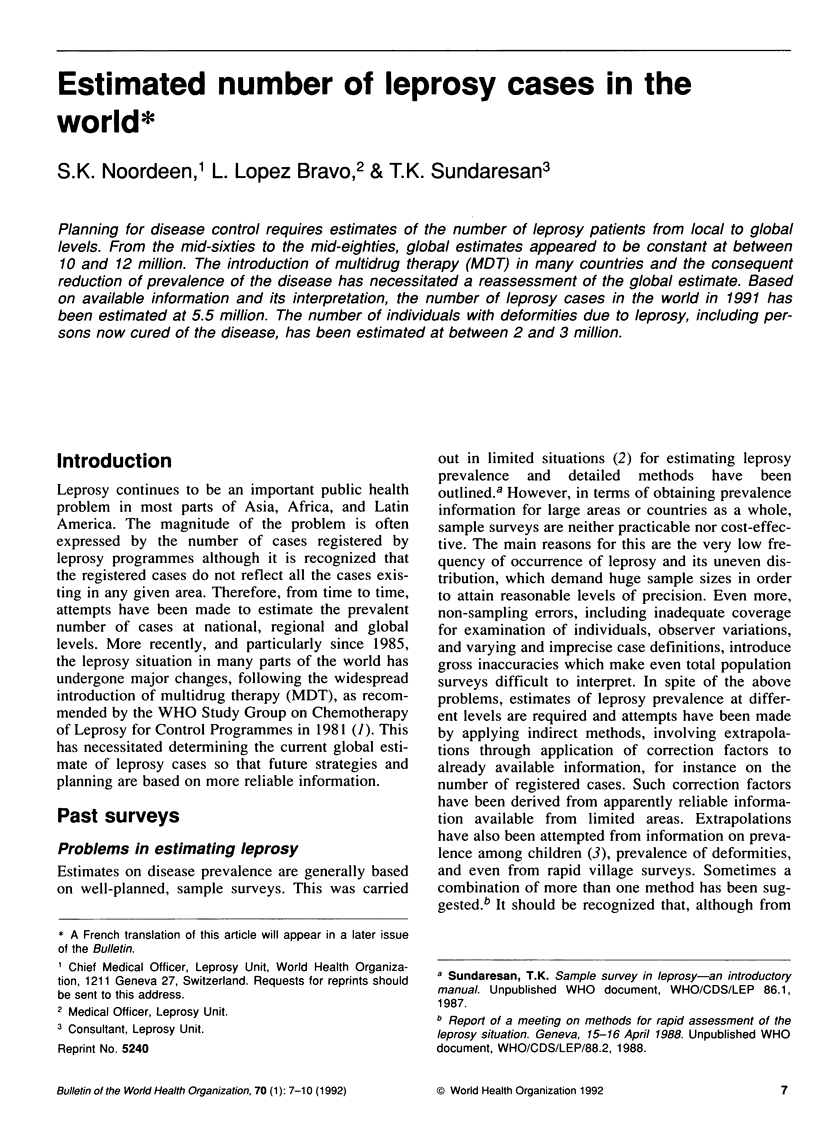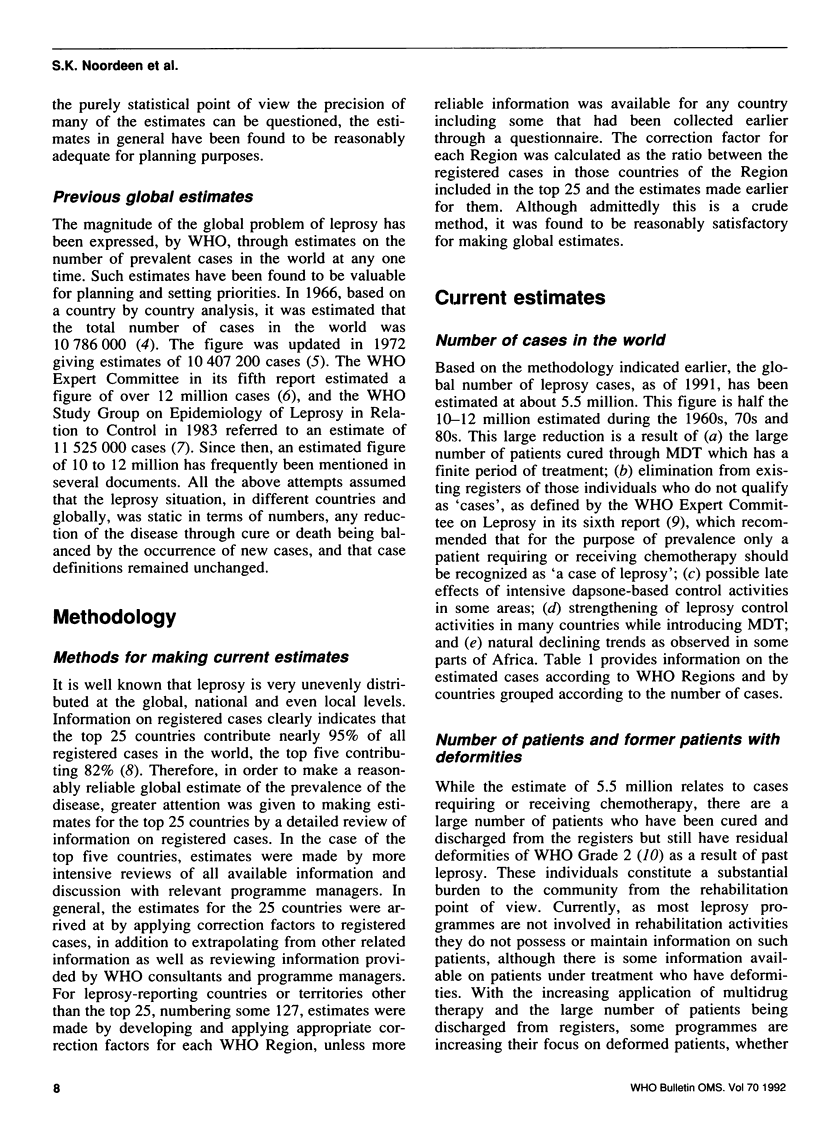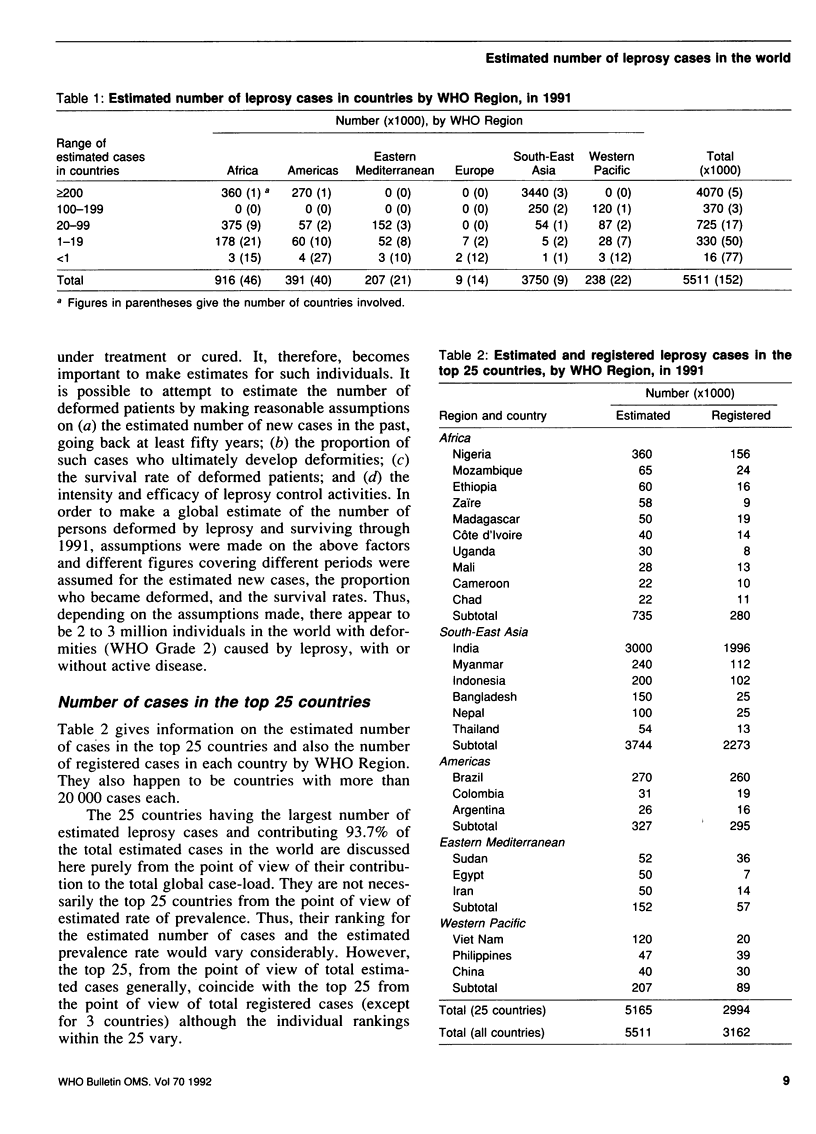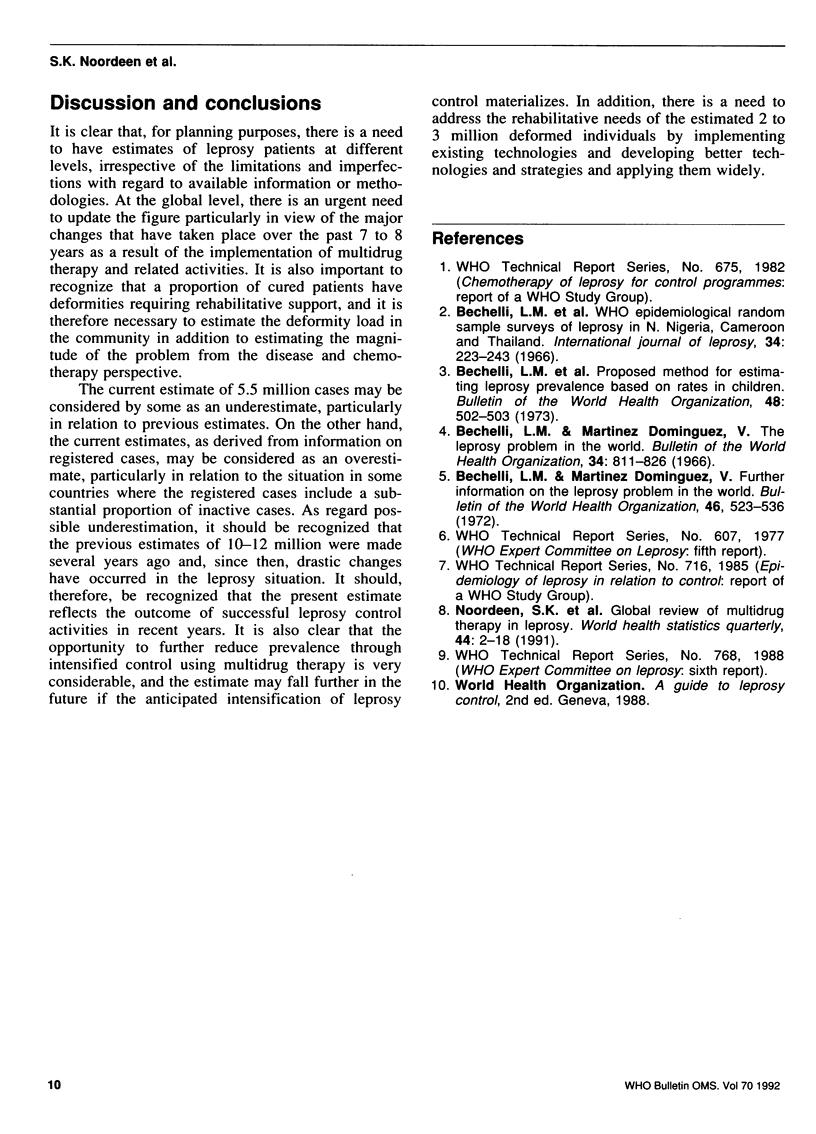Abstract
Planning for disease control requires estimates of the number of leprosy patients from local to global levels. From the mid-sixties to the mid-eighties, global estimates appeared to be constant at between 10 and 12 million. The introduction of multidrug therapy (MDT) in many countries and the consequent reduction of prevalence of the disease has necessitated a reassessment of the global estimate. Based on available information and its interpretation, the number of leprosy cases in the world in 1991 has been estimated at 5.5 million. The number of individuals with deformities due to leprosy, including persons now cured of the disease, has been estimated at between 2 and 3 million.
Full text
PDF



Selected References
These references are in PubMed. This may not be the complete list of references from this article.
- Bechelli L. M., Gallego Garbajosa P., Mg Mg Gyi, Uemura K., Sundaresan T., Tamondong C., Martínez Domínguez V., Sansarricq H., Walter J. Proposed method for estimating leprosy prevalence based on rates in children. Bull World Health Organ. 1973;48(4):502–503. [PMC free article] [PubMed] [Google Scholar]
- Bechelli L. M., Martinez Dominguez V., Patwary K. M. WHO epidemiologic random sample surveys of leprosy in northern Nigeria (Katsina), Cameroon and Thailand (Khon Kaen). Int J Lepr Other Mycobact Dis. 1966 Jul-Sep;34(3):223–243. [PubMed] [Google Scholar]
- Bechelli L. M., Martìnez Domìnquez V. Further information on the leprosy pproblem in the world. Bull World Health Organ. 1972;46(4):523–536. [PMC free article] [PubMed] [Google Scholar]
- Bechelli L. M., Martínez Domínguez V. The leprosy problem in the world. Bull World Health Organ. 1966;34(6):811–826. [PMC free article] [PubMed] [Google Scholar]



